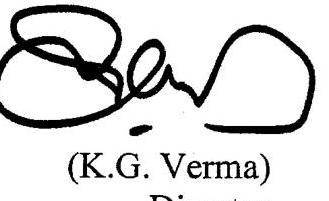This office memorandum clarifies the roles and responsibilities of Public Information Officers (PIOs) under Section 5 of the Right to Information Act, 2005. While PIOs can seek assistance from other officers for proper discharge of their duties, and such assisting officers are treated as PIOs for contravention of the Act, this provision does not grant PIOs the authority to designate other officers as PIOs or direct them to reply to applicants. The primary responsibility for providing information or rejecting an application lies solely with the designated PIO. The memorandum emphasizes that if an officer whose assistance is sought fails to provide necessary help, the Information Commission may impose penalties or recommend disciplinary action against them, similar to actions taken against a PIO. The contents of this memorandum are to be brought to the notice of all concerned officials and departments.
SOURCE PDF LINK :
Click to access 1_14_2008-IR_28072008(English).pdf
Click to view full document content
No.1/14/2008-IR
Government of India
Ministry of Personnel, Public Grievances \& Pensions
Department of Personnel \& Training
North Block, New Delhi
Dated: the $28^{\text {th }}$ July, 2008
OFFICE MEMORANDUM
Subject: Clarification regarding Sub-sections (4) and (5) of Section 5 of the Right to Information Act, 2005.
Sub-sections (4) and (5) of section 5 of the Right to Information Act, 2005 provide that a Public Information Officer (PIO) may seek the assistance of any other officer for proper discharge of his/her duties. The officer, whose assistance is so sought, shall render all assistance to the PIO and shall be treated as a PIO for the purpose of contravention of the provisions of the Act. It has been brought to the notice of this Department that some PIOs, using the above provision of the Act, transfer the RTI applications received by them to other officers and direct them to send information to the applicants as deemed PIO. Thus, they use the above referred provision to designate other officers as PIO.
2. According to the Act, it is the responsibility of the officer who is designated as the PIO by the public authority to provide information to the applicant or reject the application for any reasons specified in sections 8 and 9 of the Act. The Act enables the PIO to seek assistance of any other officer to enable him to provide information to the information seeker, but it does not give him authority to designate any other officer as PIO and direct him to send reply to the applicant. The import of sub-section (5) of section 5 is that, if the officer whose assistance is sought by the PIO, does not render necessary help to him, the Information Commission may impose penalty on such officer or recommend disciplinary action against him the same way as the Commission may impose penalty on or recommend disciplinary action against the PIO.
3. Contents of this OM may be brought to the notice of all concerned.

(K.G. Verma)
Director
- All the Ministries / Departments of the Government of India
- Union Public Service Commission/ Lok Sabha Sectt./ Rajya Sabha Secretariat/ Cabinet Secretariat/ Central Vigilance Commission/ President’s
Secretariat/ Vice-President’s Secretariat/ Prime Minister’s Office/ Planning Commission/Election Commission.
3. Central Information Commission/State Information Commissions.
4. Staff Selection Commission, CGO Complex, New Delhi
5. O/o the Comptroller\&Auditor General of India, 10, Bahadur Shah Zafar Marg, New Delhi.
6. All officers / Desks / Sections, DOP\&T and Department of Pension and Pensioners Welfare.
Copy to: Chief Secretaries of all the States/UTs.